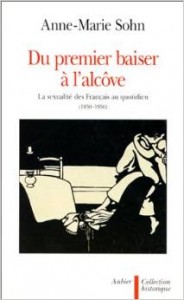
The title of this post comes from one of the complaints the FCC received in response to Michael Sam kissing his boyfriend after getting drafted into the NFL. I admit that I don’t particularly care about the NFL or about Michael Sam being added to the growing list of “first openly gay person to…” But I did find the language of the complaints to be really interesting. First, the repeated emphasis on display and “openness:”
“I was incensed at this vile, disgusting, inappropriate display of homosexual behaviour.” “The show depicted homosexual acts openly between two men”
This kind of talk stems less, I think, from a desire to pretend that homosexuality doesn’t exist, but rather from a different kind of sexual ethos that demands one speak around, rather than directly of, same-sex desires. In fact, second, the unwillingness to name what these viewers saw as “gay” — or even to use a pejorative — and instead the constant use of the term “homosexual” speaks, I think, to an attempt to name what is still essentially unnameable for a large segment of the population. For the most part, the complaints aren’t really about condemning same-sex desire as such — though that is clearly present — but rather about the fact that ESPN forced these viewers to engage with the existence of such desire on different terms. This is one reason why its important to not allow the national momentum seen by the gay marriage movement to overshadow continuing regional differences. Recently, the Human Rights Campaign announced a multimillion dollar program to promote gay rights in Arkansas, Mississippi, and Alabama. The goals of the campaign are rightly focused, it seems, on community outreach, but number one is “Empower LGBT people (and straight allies) to come out” and I wonder if that is necessarily the right path to take when it’s clear that the movement speaks an entirely different language than the people it is trying to reach.
